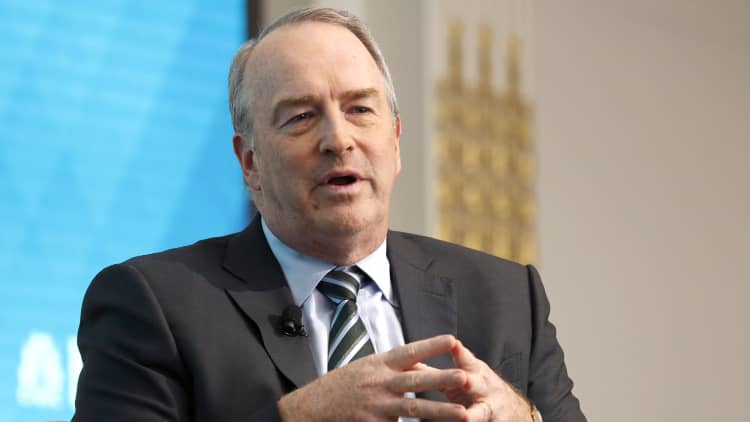
PepsiCo on Monday reported that its quarterly revenue fell as fewer consumers bought its drinks at restaurants or convenience stores as a consequence of the coronavirus pandemic.
But its food business fared better, with products like Cheetos and oatmeal seeing strong growth.
CEO Ramon Laguarta chalked it up to Pepsi's investments, particularly last year, which range from rejuvenating some of its legacy brands to growing its e-commerce business. And the company plans to use the lessons of the pandemic, like new consumer trends and the revival of forgotten habits, to drive the business going forward.
"It's sustainable, long-term market share across multiple parts of the value chain that I think is going to make us a stronger company going forward," Laguarta said.
Shares of the company rose less than 1% in morning trading.
Pepsi said it would not be providing an outlook for fiscal 2020 at this time, citing the continued volatility and uncertainty surrounding the pandemic.
Here's what the company reported compared with what Wall Street was expecting, based on a survey of analysts by Refinitiv:
- Earnings per share: $1.32, adjusted, vs. $1.25 expected
- Revenue: $15.95 billion vs. $15.38 billion expected
In the second quarter ended June 13, Pepsi reported net income of $1.65 billion, or $1.18 per share, down from $2.04 billion, or $1.44 per share, a year earlier.
Laguarta said the company spent nearly $400 million on costs related to the pandemic, including personal protective equipment for employees. CFO Hugh Johnston said on CNBC's "Squawk Box" that those added costs will likely diminish.
Excluding items, the company earned $1.32 per share, beating the $1.25 per share expected by analysts surveyed by Refinitiv.
Net sales dropped 3.1% to $15.95 billion, topping expectations of $15.38 billion. The company's organic revenue, which strips out foreign currency, acquisitions and divestitures, fell 0.3%.
PepsiCo's North American beverage unit saw its organic revenue fall 7%, despite growth at supermarkets and dollar stores. The closure of restaurants, movie theaters and sports stadiums weighed on the business, but not all of its drinks suffered. Pepsi Zero Sugar and Bubly saw double-digit revenue growth.
Pepsi's juice business is booming as consumers look to boost their immune system, although there is little evidence to suggest it helps against Covid-19. Laguarta said that the company will look to create more drinks — and even snacks — that focus on immunity.
Quaker Foods North America reported organic revenue growth of 23% as consumers bought more oatmeal for breakfast and baking. Laguarta said consumers continued to buy these items even as economies opened up at the end of the quarter. The company has crafted a marketing plan for the rest of the year to retain these sales, including the launch of Cheetos mac and cheese.
Frito-Lay North America saw organic sales growth of 6%.
Outside North America, the company reported declining organic sales in its Europe and Africa, Middle East and South Asia segments. Latin America's organic revenue was flat, while its Asia Pacific, Australia and New Zealand and China segment saw organic sales growth of 15%.
Laguarta said the company saw signs of improvement in May and June as many economies began to reopen and consumers resumed some of their prior habits. But Pepsi is hoping to hold onto some of consumers' new habits, like ordering online. In May, the company launched two e-commerce websites, snacks.com and PantryShop.com.
"Whoever wins in e-commerce now and is able to capture those families that are trying the grocery service for the first time, I think is going to win those families in the future, so we're investing heavily to try to be the first in that channel," Laguarta said.


